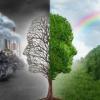News
Displaying Results 76 - 100 of 102
Migration is an old and growing phenomenon – the United Nations Populations Division estimates that around 266 million people live outside their country of origin. In the UNECE region, by 2019 there were around 45 million people from Eastern Europe and Central Asia living abroad, with more than…
Both innovation and Public-Private Partnerships (PPPs) are essential drivers of economic development, environmental sustainability and social inclusiveness.
The UNECE region was hit hard by the COVID-19 crisis, not only because of the health crisis itself but also, even as the threat recedes…
Mobility is a primary enabler of our economic and social life. However, despite its many benefits, the costs of mobility to societies around the world remain unacceptably high. These include greenhouse gas emissions (transport accounts for some 24% of global CO2 emissions, three quarters of which…
The extraction of raw materials worldwide has more than doubled since 1990 and could double again by 2060 in the absence of corrective policies. According to the UN International Resources Panel, resource extraction and processing account for 90% of global biodiversity loss and water stress impacts…
To reduce transmission of the novel coronavirus, Governments in the UNECE region introduced social distancing and other measures, which have often included restrictions on the freedoms of assembly and of movement. Consequently, there has been an impact on procedural rights of public participation…
Systemic deficiencies with regard to access to information, decision-making or compliance with environmental law can seriously threaten successful implementation of circular and green economy and sustainable development. Taking a case to court to advance a widely shared public interest remains an…
Olga Algayerova
Women’s Day Blog
On the occasion of the International Women’s Day, I would like to pay tribute to all women leaders, and all women and men, girls and boys, who are empowering women and girls to build a better future for all!
The theme of this year’s International Women’s Day is…
Achieving equality between women and men is a core goal of governments and the international community. The frameworks that guide us towards this goal—the Sustainable Development Agenda and The Beijing Platform for Action, among others—emphasize that for equality to be achieved, women and men must …
A new working paper, Adapting household surveys to the situation of the pandemic, shows that statistical producers in countries in the UNECE region have moved fast to measure the effects of the pandemic on households, and to adapt data collection to crisis conditions; but they need support for…
The COVID-19 pandemic has exposed dysfunctions in many systems, including those that affect the lives of older people and their communities. COVID-19 has disproportionately affected older persons – nearly 9 out of 10 COVID-19 deaths in the UNECE region have been among those aged 65 and older.…
After months of the COVID-19 crisis challenging healthcare systems and undermining economies, governments worldwide are looking for ways to jump-start the economic recovery. Without factoring in environmental concerns, recovery packages risk undermining the foundations for sustainable development, …
Effective public access to environmental information is critical for promoting a green and circular economy, increased biosafety and community resilience. The need to further such access using modern digital technologies has been increasingly voiced across countries in the light of the coronavirus…
An estimated one billion people worldwide live with disabilities. In the European Union, one person in seven among the working age population reports a difficulty with a basic activity – such as walking, seeing or hearing, lifting or carrying, sitting or standing, and remembering and concentrating…
New guidance published by UNECE’s Conference of European Statisticians offers support to national statistical offices to better communicate their statistics about gender equality. The guidance, developed by a task force of experts from across the region, focuses on six themes: the gender pay gap;…
The current patterns of raw material consumption are unstainable and are becoming an existential threat to the planet.
The United Nations Framework Classification for Resources (UNFC) offers a solution to support a total transformation towards a sustainable resource management future. To…
We stand at a critical moment. More than ever, the great challenges we face – like COVID-19, the climate crisis, unsustainable resource use, and inequalities – cannot be faced by one country alone. The 75th anniversary of the United Nations is the time to reflect on how we can best work together to…
The European Green Deal is a new growth strategy aiming to transform the European Union into a modern, resource-efficient and competitive economy. The European Green Deal has a number of overarching objectives, including for the European Union to reach net-zero GHG emissions by 2050; promotion of…
Data can be a matter of life and death. We have seen in recent years how statistical information about the structure of the communities affected by earthquakes or typhoons—how many people, in which age groups, and in which locations—is essential for making quick and informed decisions to mobilize…
The COVID-19 health crisis has caused wide-ranging socio-economic disruption worldwide. This has exposed and aggravated existing social imbalances. The pandemic has called for unprecedented measures to protect those so close to our heart: our parents, grandparents, the elderly and vulnerable.…
With the consequences of COVID-19 still unfolding, one area of major disruption has been to global food systems, resulting in significant increases in food loss and waste.
Today, the first ever International Day of Awareness of Food Loss and Waste, is a wake-up call. We must access and make…
While COVID-19-related disruptions may have impacted people’s mobility and slowed cross-border movements of people and goods this year, pollution knows no travel restrictions. Air pollutants, travelling through our atmosphere, can harm people and the environment even thousands of kilometres…
In early March this year, the UN Secretary-General called for countries to step up their efforts and turn deforestation around in order to make 2020 a ‘super year’ for nature.
This call arrived following the release of an alarming report highlighting the unprecedented speed at which ecosystems…
The COVID-19 pandemic and the lockdown measures implemented by most of the governments in the UNECE region have fundamentally changed the way we work, study, communicate, define priorities and function in our everyday life. Governments and international organisations have focused on immediate…
Most Governments have responded to the coronavirus disease (COVID-19) pandemic by declaring a state of emergency and by adopting numerous measures to combat the spread of the virus, which have often included restrictions on the freedoms of assembly and movement. This has altered the way in which…
Like so much else in our societies that we had taken for granted before the COVID-19 crisis, the daily commute has for many been temporarily set aside in a makeshift home office.
After weeks of lockdown and confinement, the priority now is to relaunch the economy, while maintaining the necessary…

















